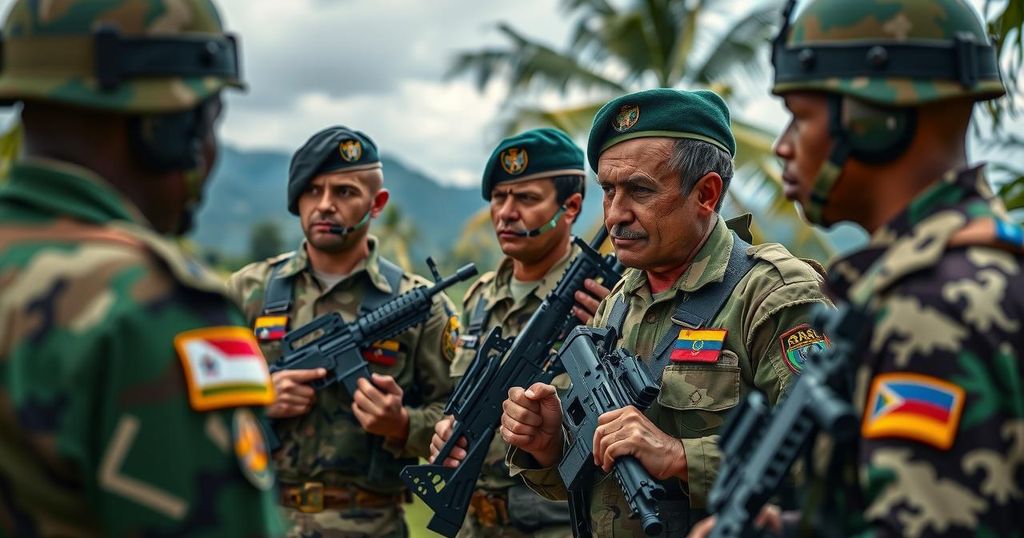Russia Sends Military Instructors to Equatorial Guinea to Bolster Security
Russia has dispatched around 200 military instructors to Equatorial Guinea to enhance the security of President Teodoro Obiang Nguema Mbasogo. The instructors will be training elite units meant to protect the president and his potential successor. This deployment forms part of Russia’s broader strategy to increase its influence in Central and West Africa, where it is already involved through the presence of mercenaries.
Recent reports indicate that approximately 200 Russian military instructors have been deployed to Equatorial Guinea in a bid to bolster the security surrounding President Teodoro Obiang Nguema Mbasogo. Their role will primarily focus on training elite security forces responsible for safeguarding the president, who has held power since a coup in 1979. Additionally, Russian airborne troops and Belarusian personnel might join this initiative, aiming to solidify the security of the president’s son, Teodoro Nguema Obiang Mangue, who is viewed as a potential successor and possesses significant wealth. Analysts suggest that this action forms part of a broader strategy by Russia to enhance its influence within Central and West Africa. Equatorial Guinea, in particular, has witnessed an influx of Russian mercenaries supporting local military regimes in their efforts against insurgent threats. This move underscores Russia’s intent to deepen its foothold in the region, contrary to the historical isolation experienced by the nation under President Mbasogo’s lengthy rule.
Equatorial Guinea has been under the authoritarian rule of President Teodoro Obiang Nguema Mbasogo since 1979. His regime has been characterized by political repression and economic mismanagement. The recent deployment of Russian military instructors is seen as a component of Russia’s strategy to extend its influence in Africa, particularly in nations experiencing political instability. The presence of mercenaries and military support reflects a growing trend of collaboration between Russia and African countries, aimed at mutual interests, particularly regarding security and resource management.
In summary, Russia’s decision to send military instructors to Equatorial Guinea highlights its ongoing efforts to strengthen influence in Central and West Africa. The training and support for elite security forces not only aim to secure President Mbasogo’s administration but also position Russia as a key player in the region amidst prevailing political challenges. As Equatorial Guinea navigates its complex political landscape, the implications of this military presence may resonate beyond its borders, signifying a shift in geopolitical alignments.
Original Source: 112.ua




Post Comment